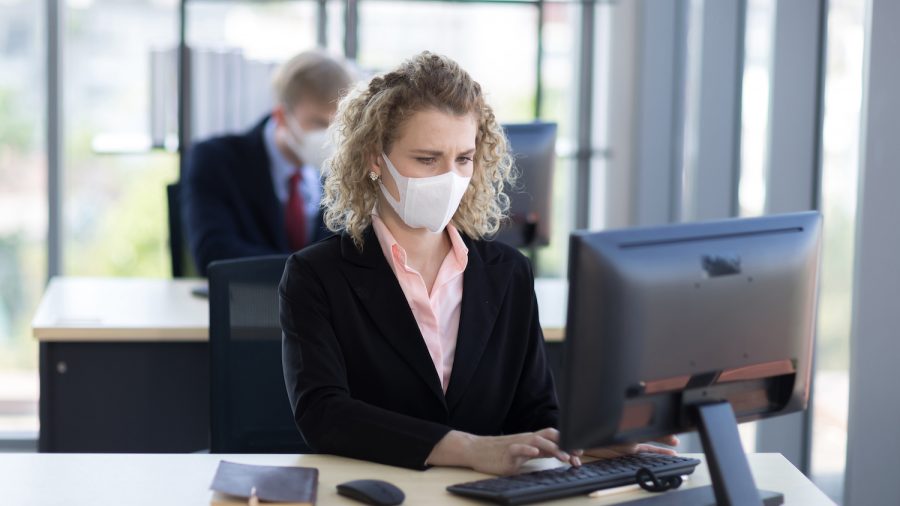From safety protocols to working remotely, COVID-19 has most likely forever changed the traditional workspace
The ongoing COVID-19 pandemic has proven itself again to have changed the world forever when it forced a vast majority of employees to work remotely. In March and April of 2020, practically the entire world transitioned from working in offices with coworkers to being secluded in their houses, working remotely. Companies were forced to use Microsoft Teams, Google Meet, Zoom, and other platforms designed for remote work and schooling in order to carry out business operations as they normally would.
Experts have agreed that COVID-19 has changed the world in a plethora of ways, one being how people work. Employees enjoy having the luxury of being able to work from home, as it is the most popular among U.S. workers. According to brookings.edu, “The average applicant was willing to take an 8 percent hourly wage cut in order to work from home.” Although this may be true, there are many downfalls to working remotely. This new world of work could possibly allow United States workers to enjoy the best of both worlds.
Shifting from the typical, in-office work day to a remote work day, it appears that many Americans are not minding it as there are many benefits. Employees do not have to worry about getting up as early, there is not as much need for massive workspaces, it is better for the environment and safer for people to not be using vehicles as much, and it requires little to no commuting, which is seen as one of the least enjoyable things adults do each day.
Marc List, the Senior Managing Director of CBIZ MHM, LLC, a nationwide financial services and business consulting company in Boca Raton, believes the U.S. workforce has changed forever. Out of the 95 employees he oversees, only about ten show up to the office on any given day. CBIZ has implemented individual offices for everyone who comes into the office, with no use of cubicles. Employees must wear facial coverings when they step out of their office, and there is no shared food allowed to be in the kitchen. CBIZ has announced that there would be no changes in how the company is running and this will be revisited in April.
“I believe the workforce will be forever changed,” List told The Torch. “ In a post-COVID world, I expect most people to work a combination of in the office and remotely. Each work area has significant benefits and detriments; therefore, a combination of in-office and remote work will allow people to take advantage of both workstyles.” Since CBIZ is a firm that deals with taxes, employees have been going into the office to open mail and scan documents for accountants who are working from home since the beginning of the pandemic.
“Working remotely is most difficult for those entering the workforce or starting a new job. It is much easier to learn new tasks and meet people while working in the office,” List said. “Employers are adapting to assisting people with these challenges.” List believes another plus of having the capability for remote work is “employers are no longer restricted to looking for talented people close to the office. COVID will have long term implications on the demographics of the country.”
As the workforce seems as it will never return to the post-COVID “normal” times, this will have a direct impact on teenagers, as they are entering the workforce within the next decade. Teenagers will face new challenges as no one knows what the workforce will look like when high schoolers enter it. Some may be working strictly remotely and some may be working the typical office schedule. People who would be working in offices need to get used to a new normal as masks may be required for months to come, and some employees may never return to the office.









